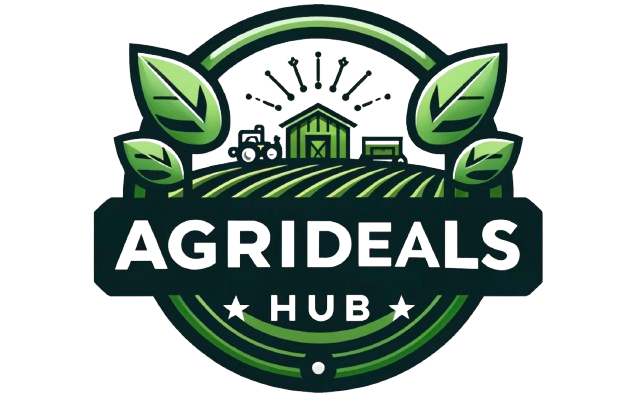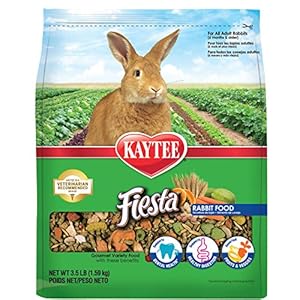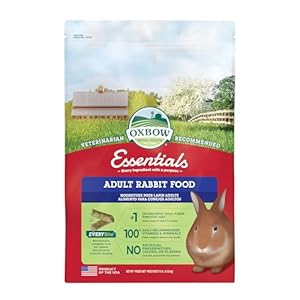
Increasing on Driver’s award-winning Civil Eats investigation, the ebook reveals how Tyson’s meatpacking business is structured to hide accidents. Employees are directed to on-site nurses and company-approved medical doctors, all a part of a vertically built-in healthcare system that downplays and ignores accidents—and even punishes employees for in search of medical assist. There may be an eviscerating high quality to Driver’s prose as she renders in exacting element the employees’ repetitive motions and uncared for accidents.
However this isn’t simply the story of an organization’s harrowing disregard for all times; additionally it is about what Driver describes because the “the ethical great thing about the immigrants who course of our nation’s meat,” like the ladies employees who joined collectively to show one another tips on how to rise up for his or her rights. Driver takes us contained in the properties of employees, witnessing their each day rituals of survival and grief. In a single particularly haunting scene, a former Tyson employee leaves a “cup coated in purple hearts stuffed with recent espresso for Plácido”—an providing to her husband who died of Covid-19 early within the pandemic. He was possible predisposed to the virus as a result of his lungs had been engulfed in ammonia after a chloride spill at Tyson. Life and Demise of the American Employee is important studying for anybody who cares in regards to the U.S. meals system and the immigrant employees who sacrifice their well being to make it doable. —Gray Moran


Love, Nature, Magic: Shamanic Journeys into the Heart of My Garden
By Maria Rodale
Grass, mosquitos, vultures, and paper wasps are among the 26 more-than-human kin with whom Maria Rodale converses in her Pennsylvania backyard in Love, Nature, Magic. Head of the Rodale Institute and Rodale, Inc. publishing group, which makes a speciality of works about nature, Rodale supplies a 101-level glimpse of the shamanic journeying course of, which historically entails interacting with the spirit world and different realms of consciousness to unlock energy or info for therapeutic or reunification. In contrast to some practitioners, her model of journeying doesn’t contain ingesting something; moderately, Rodale facilitates these experiences utilizing sound—particularly a drum or rattle—as her shamanic information. (Nonetheless different practitioners could use ecstatic dance as a technique of transport.)
This tome, a peek into animism and pantheism, relates a collection of essay-like journal entries from April 2021 to Might 2022 that element Rodale’s visits with the bugs, crops, fauna, and fungi in her backyard. Her journals expound upon the dialogues she carries out together with her more-than-human kin, and the teachings she absorbs from observing the methods they conduct their lives. Love, Nature, Magic is suited to readers who yearn for nature amid city life, in search of to attach with the wildness that’s already inside them. In the end, this ebook solutions the query: How can we co-exist extra peaceably with nature by understanding the methods of nature? —Sarahlynn Pablo


The Memory of Taste: Vietnamese American Recipes from Phú Quoc, Oakland, and the Spaces Between
By Tu David Phu and Soleil Ho
Tu David Phu’s new cookbook is an homage to immigrant households—and moms, specifically. The High Chef alum, raised in Oakland, California, focuses on tales and recipes from Phú Quoc, an island within the Southwest of Vietnam the place his mother and father are from.
The son of refugees, Phu grew up together with his father, a fishmonger, and his mom, a seamstress. A number of essays all through the cookbook function a information to his upbringing and ethos. For instance, an essay on seafood sustainability covers not solely the place fish are caught, but in addition how utilizing all elements of a fish is the way in which his household sustained themselves, like the various generations earlier than them. The ebook was written with Soleil Ho, a San Francisco Chronicle columnist and the paper’s former meals critic, and edited by Bryant Terry (Black Food, Vegan Soul Kitchen).
In these pages, you’ll find recipes for Vietnamese hotpot soup made with salmon, a brined herring salad, and classics like pho ga, a hen noodle soup. Tu shares Vietnamese staples, together with a pickle of julienned daikon and carrots that pairs effectively with many dishes, and a easy lime and fresh-cracked pepper dipping sauce for seafood reminiscent of steamed crab that opens up the palate. Full of colourful pictures, the ebook might be a welcome addition for meals lovers who need to increase their repertoire of Vietnamese dishes, from conventional recipes to “authentically inauthentic” chef creations. —Momo Chang


The Mighty Red
By Louise Erdrich
Louise Erdrich’s newest novel, The Mighty Pink, takes place in a fictional city in North Dakota’s Pink River Valley, a area well-known for rising sugar beets. Erdrich, a member of the Turtle Mountain Band of Chippewa, beforehand wrote in regards to the rise of that crop as a commodity and the bittersweet methods it modified life within the valley, in her 1986 novel The Beet Queen.
The Mighty Pink takes place between 2008 and 2024, with a unique solid of characters and in a brand new period of commodity agriculture. The place beet-growing as soon as introduced inhabitants development and chain shops, now trucking, chemical compounds, and local weather change encompass the business. The novel facilities on a mixed-race character named Kismet, following each her love triangle with Gary, the son of a longtime farming household, and Hugo, a dropout autodidact, and the monetary and relationship troubles of her beet-truck driver mom and theater-teacher father. But the valley and its ecosystem, particularly its birds, drive the movement of the novel as a lot as its characters. Erdrich’s well-hewn ability for writing multigenerational dramas in regards to the Native, European-descended, and mixed-race folks of the higher Midwest, combined with detailed and poignant ecological themes, makes for a layered, pressing, human story. —Caroline Tracey


My Regenerative Kitchen: Plant-Based Recipes and Sustainable Practices to Nourish Ourselves and the Planet
By Camilla Marcus
At a time when attaining systemic change within the meals system can really feel subsequent to unattainable, Camilla Marcus invitations readers to deal with the nice they’ll do inside their very own properties. In My Regenerative Kitchen, the chef and restaurateur attracts on her expertise because the founding father of west~bourne, New York Metropolis’s first licensed zero-waste eatery, to current a bevy of dishes that assist sustainable farming by scrumptious cooking. Now residing in California, Marcus curates an eclectic menu that integrates her dwelling state’s produce (suppose avocado oil and Espelette chili peppers) with world influences, significantly Japanese, Center Jap, and Italian cuisines.
For her, “regenerative” displays agriculture that improves soil well being, protects water and biodiversity, and minimizes each waste and chemical inputs. Consistent with that philosophy, her recipes are all plant-based, usually function cowl crops like sorghum and buckwheat, and are designed to maximise using each ingredient. I particularly appreciated the zero-waste “professional suggestions” sprinkled all through the textual content, reminiscent of saving the boiled kombu seaweed from Japanese dashi broth to remodel into furikake seasoning. Marcus’ earnest writing fashion, mixed with Ben Rosser’s ethereal movie pictures, lend the ebook a sure West Coast utopian vibe, and it’s clear she believes within the potential of people to shift meals tradition. “Collectively we are able to regenerate for the subsequent technology,” she urges. “So, in our dwelling kitchens, let’s be radicals, naturally.” —Daniel Walton


Nuggets of Gold: Further Processed Chicken and the Making of the American Diet
By Patrick Dixon
Few meals are extra quintessentially American than the hen nugget. In his debut ebook, Nuggets of Gold, historian Patrick Dixon provides a primer on the historical past of concentrated animal feeding operations (CAFOs), the poultry business, and the hen nugget.
In 1923, a Delaware farmer by chance acquired 10 occasions as many chickens as she ordered. As an alternative of returning the chickens, the farmer determined to increase her operation, figuring she may be capable of return a good revenue. And she or he may. By 1926, she had 10,000 birds. Swiftly, an period of CAFOs started in poultry manufacturing, which nonetheless reigns immediately. Within the post-World Struggle II period, considerations about international meals shortages and inhabitants booms made “ending starvation” a key focus of U.S. agricultural and overseas coverage. The hen nugget was born throughout this time—an answer to utilizing elements of a hen usually wasted in processing and a great consumerist possibility in a rising convenience-oriented economic system. Product of “additional processed hen,” nugget manufacturing entails the “reclamation of meat that happened as soon as the most well-liked cuts—breasts, wings, and legs—had been faraway from the carcass,” Dixon explains. Elevated nugget demand, pushed by McDonald’s and different fast-food chains, meant elevated demand for reasonable chickens. Via the rise of hen manufacturing and consumption, Dixon masterfully illustrates 20th and 21st century U.S. meals historical past—and the evolution of extractive capitalism.
In Nuggets of Gold, which supplies a multi-layered narrative by the evaluation of historic paperwork, Dixon argues that the employees on farms, inside processing crops, and on the meatpacking ground needs to be on the core of the poultry business story. Within the epilogue, he writes: “As a thousand poultry strains spun on into the longer term, practically 200 birds per minute hurtling alongside on a quick observe from a cage to a cardboard field in a truck, the human harm that was the untold value of those journeys remained unaccounted for.” —Nina Elkadi


Our South: Black Food Through My Lens
By Ashleigh Shanti
The previous few years have seen a handful of cookbook authors attempt to change perceptions of Black cuisine, rejecting previous stereotypes that scale back the flavors of a complete diaspora to some Southern dishes. High Chef alum Ashleigh Shanti is the newest so as to add her voice to this dialog together with her debut cookbook, Our South: Black Food Through My Lens.
A Black, queer, Southern chef raised in Virginia and now based mostly in Asheville, North Carolina, Shanti takes readers on a journey by 5 southern microregions—Backcountry, Lowcountry, Midlands, Lowlands, and Homeland—showcasing their distinct meals traditions. Every part honors a lady in her household whose distinctive cooking fashion formed Shanti’s palate and culinary profession. Basic recipes like stewed tomatoes, cornbread, Leather-based Britches (dried inexperienced beans), and potlikker meet extra private takes like Spicy Beet Chow Chow, Vinegar-Cured Trout and Bitter Apples, and savory Cabbage and Mushroom Pancakes.
With 125 recipes and gorgeous pictures by Johnny Autry, Our South is each a conventional cookbook and low desk ebook, making it an ideal centerpiece for any kitchen or residing area. Whether or not you’re a seasoned cook dinner or a culinary novice, Shanti’s ebook provides one thing for everybody, combining small bites and massive meals with heartfelt anecdotes that every one rejoice the wealthy cultural tapestry of the South. —Nicole Caruth
Trending Merchandise










